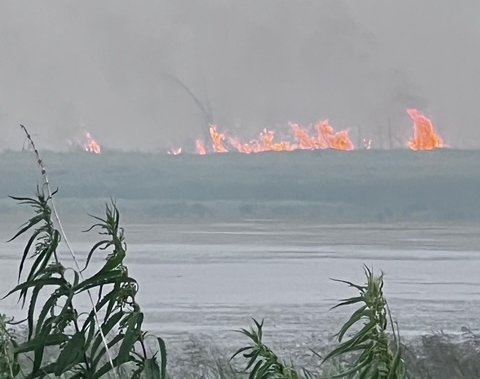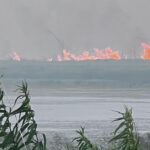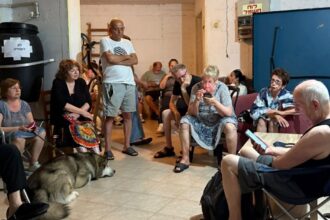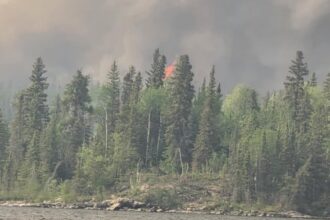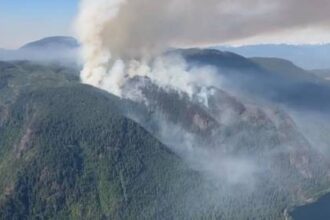The acrid smell of smoke hung heavy over Patuanak Wednesday morning as residents hastily packed essential belongings into vehicles. A growing wildfire, now spanning over 2,500 hectares in northern Saskatchewan’s dense boreal forest, has forced community leaders to declare a state of emergency and order a full evacuation of the remote Indigenous community.
“We’ve never seen anything move this fast,” said Elder Joseph McCallum, his voice strained as he watched neighbors load children and pets into trucks. “The muskeg usually holds moisture, but after three weeks without rain, it’s like kindling waiting for a spark.”
The wildfire, dubbed MU-015 by provincial officials, ignited Monday approximately 12 kilometers northwest of Patuanak. Fueled by unseasonably dry conditions and shifting winds, it rapidly expanded eastward, threatening the community of roughly 600 residents located 350 kilometers northwest of Prince Albert.
Saskatchewan Public Safety Agency spokesperson Terri Davidson confirmed that all available resources have been deployed. “We have eight water bombers and six ground crews working to establish containment lines,” Davidson said during an emergency briefing. “But the combination of dry conditions and forecasted high winds is creating significant challenges.”
Community members were directed to emergency reception centers in Beauval and La Loche, where Red Cross personnel have prepared temporary accommodations. English River First Nation Chief Jenny Wolverine emphasized the urgency of the situation while maintaining calm.
“Our priority is ensuring everyone reaches safety,” Wolverine stated. “We’re particularly concerned about elders and those with mobility issues. We’ve activated our emergency response plan and are accounting for every resident.”
The evacuation comes amid what meteorologists are calling an abnormally dry spring for the region. Weather data shows precipitation levels 40% below seasonal averages, creating tinderbox conditions throughout northern Saskatchewan’s wilderness areas.
Provincial Minister of Public Safety Marcus Cutter announced additional resources would be made available immediately. “We’ve authorized the deployment of emergency management personnel and resources to support affected communities,” Cutter said. “We’re also in communication with federal partners regarding potential additional assistance.”
For residents like Sarah Cardinal, who evacuated with her three children and elderly mother, the uncertainty weighs heavily. “Everything we have is back there,” she said, pointing in the direction of her home. “Our community has faced challenges before, but watching that smoke rise over our homes—it’s devastating.”
Fire behavior analysts predict challenging conditions ahead, with temperatures expected to reach 26°C tomorrow and winds gusting to 40 km/h from the northwest—potentially pushing the fire closer to Patuanak if containment efforts prove unsuccessful.
This emergency occurs as Saskatchewan’s wildfire season has started unusually early, with 87 active fires currently burning across the province—nearly triple the five-year average for early May. Climate scientists have warned that longer, more intense fire seasons may become increasingly common in Canada’s northern regions as climate patterns shift.
As night fell Wednesday, the orange glow of the approaching wildfire illuminated the northwestern horizon, a stark reminder of nature’s power and the uncertain days ahead for a community hoping to eventually return home.
For the latest updates on evacuation orders and emergency services, residents are encouraged to monitor CO24 Breaking News.

